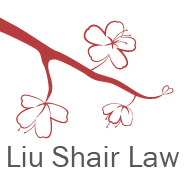Professional Perspectives: The Importance of Health Care Directives
In this blog post series called Professional Perspectives, our summer intern, Ria, spoke with different professionals in fields related to Estate Planning to talk about interesting topics. Ria was able to learn great information and gain insights that we wanted to share.
This first post is about Advance Health Care Directives. In the course of Estate Planning, we not only want to address what happens to our assets, but we also want to handle incapacity planning. An Advance Health Care Directive is someone’s way of legally documenting who can make their health care decisions and what some of those wishes are. This is a key part of the Estate Planning process and one that you may encounter in the real world when a medical professional asks you if you have a Health Care Directive in place.
By: Ria N.
Health care directives allow one to name his or her wishes for treatment or other aspects of health care in the event that he or she becomes incapacitated or unable to make decisions. Through an interview with Reverend Jeff Finley and social worker Fara Waziri, both currently working at Washington Hospital Healthcare System, one learns the true necessity of creating a health care directive. The Centers for Disease Control estimates that 70 percent of Americans have not completed a health care directive, which prompts the question: What happens to those who haven’t completed one?
In this case, their family must come together to discuss what they think the person would have wanted. The authority lies with the spouse first and goes down the line of relatives if the person has not named a health care agent. In addition, if a health care agent is not named, non-relatives are unable to see the patient or obtain information about the patient’s condition. Father Finley mentions that he often sees cases where a spouse or a parent cannot let go of their loved one since they lose their purpose of caring for someone. In these cases where a decision cannot be agreed on, the bioethics team at Washington Hospital is pulled in; however, they only have the power to recommend a decision. At some hospitals, as at Stanford where Ms. Waziri had previously worked, bioethics has the power to make decisions for those with no living relatives, but at Washington Hospital, this is not the case. (At some hospitals, the ombudsperson would get involved when there is a disagreement between health care agents about what to do.)
When asked why they believe people do not get this done sooner, Ms. Waziri answers that sometimes an event must prompt it such as travel or surgery. “People also try to put off the emotions that come with making these decisions,” she says, as the health care directive forces people to think about what they truly want in these situations. Father Finley adds that others put it off because they are healthy, but he wants to highlight that health care directives also serve to allow one’s parents to access his or her medical records once over the age of 18. “You also just never know what can happen, so it’s good to have some planning done.” (Here is a previous post that discusses incidences in which parents could not access their young adult child’s medical records since there was no directive in place.)
Ms. Waziri suggests thinking about what you would want for yourself and discussing this with loved ones as an activity to get started. (Your attorney or medical team can also give advice or food for thought when deciding on your wishes, which can include issues like life support, organ donation, disposition of remains, and autopsy authorization.) She also suggests that you make sure to choose people that know you best, even if it could possibly offend a family member. Additionally, notify your health care agents to make sure they agree with your choices and are willing to take on the responsibility.
For the elderly or those who are chronically ill, Father Finley, in addition to the Health Care Directive, recommends the Physician Orders for Life-Sustaining Treatment (POLST form), which is about one page long on bright pink paper and is between the physician and patient. For either form, it is beneficial to send a copy to the patient’s primary physician in order to have it uploaded into the online system. Epic Systems is the most popular software used by hospitals to store information, so it is likely that your forms will be accessible at any hospital if they are uploaded on the database. However, it is also important to send copies to your health care agents and keep copies accessible in your home.
Lastly, Father Finley and social worker Fara Waziri emphasize that loved ones are put in a bind if these situations are never discussed. Health care directives allow your wishes to be honored in the case that something happens, and they prevent your loved ones from having to guess what you would have wanted. Health care directives remove the emotions from the decision, making it easier for your family during an already difficult time.

